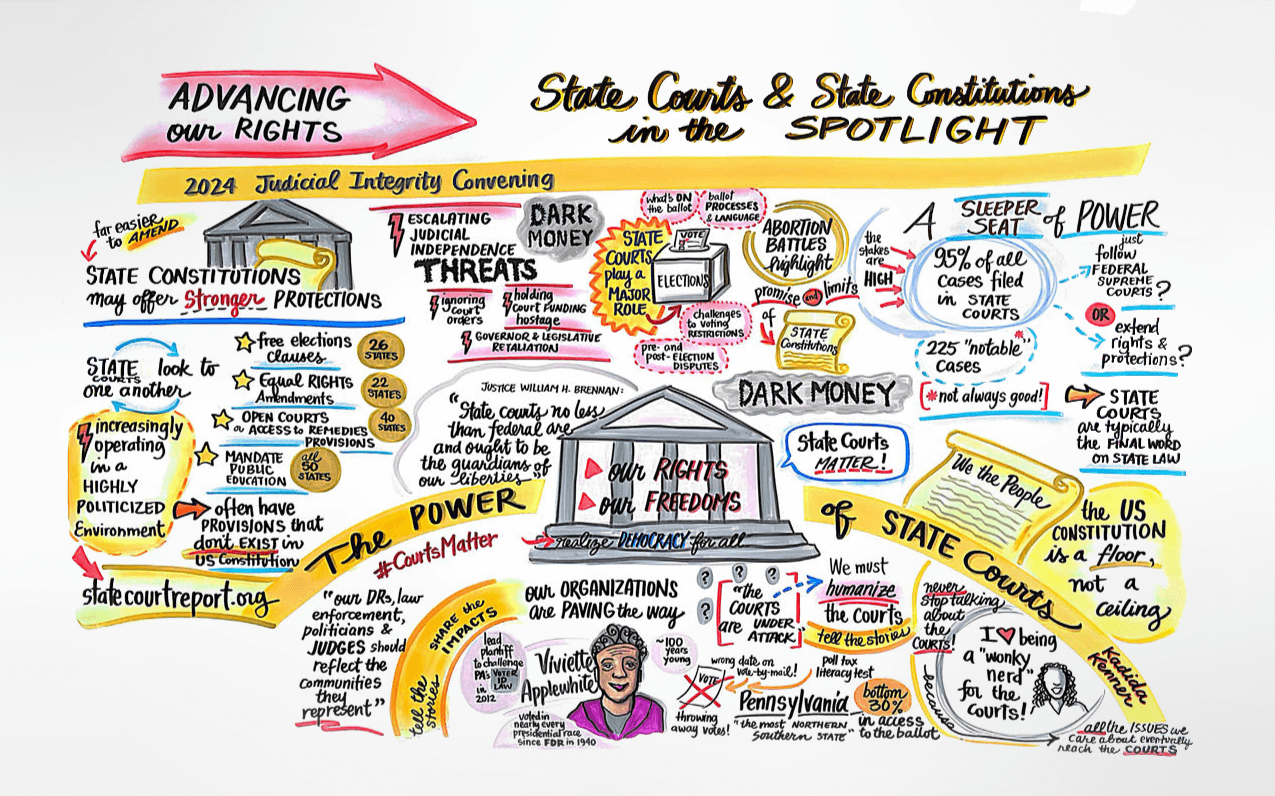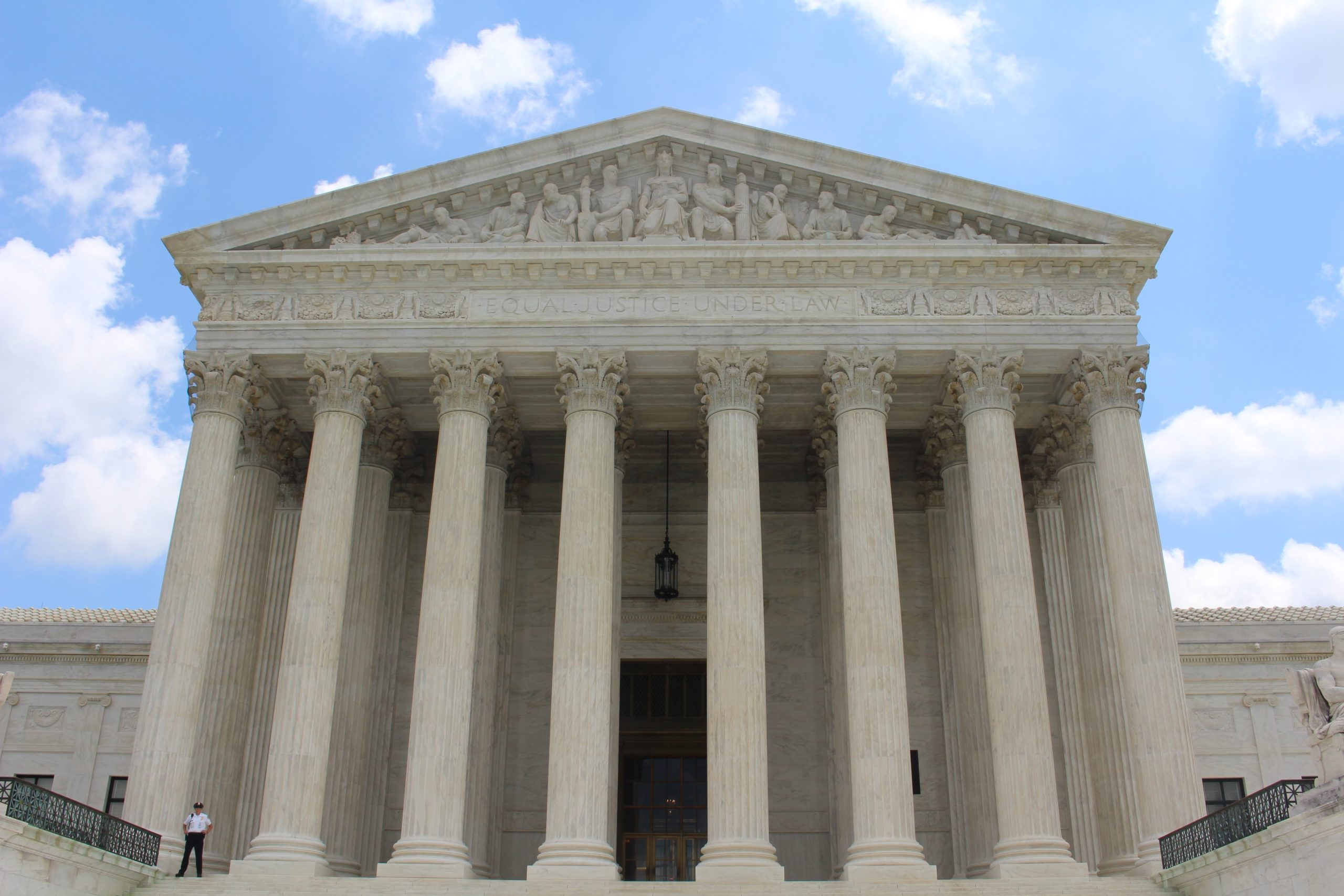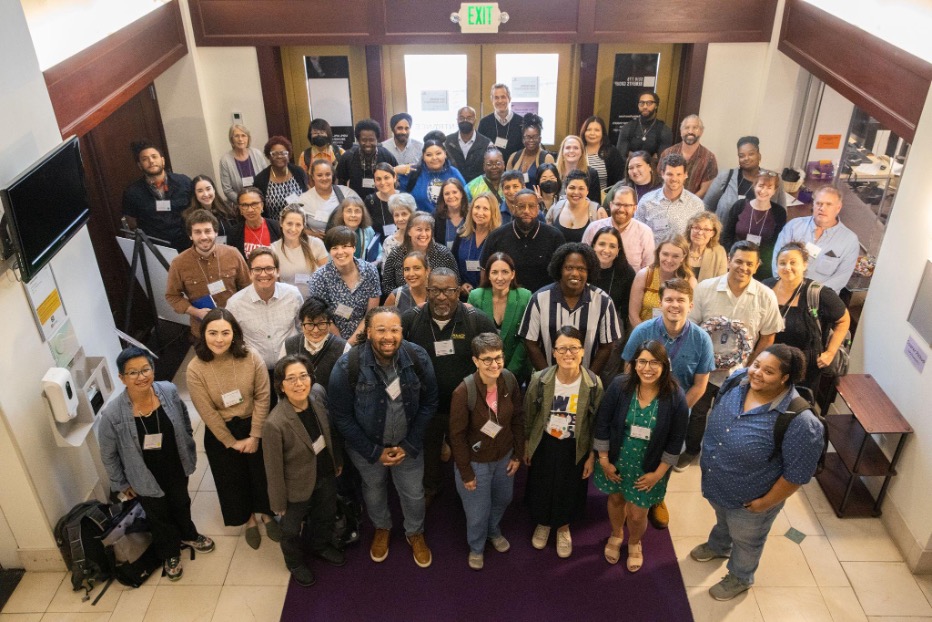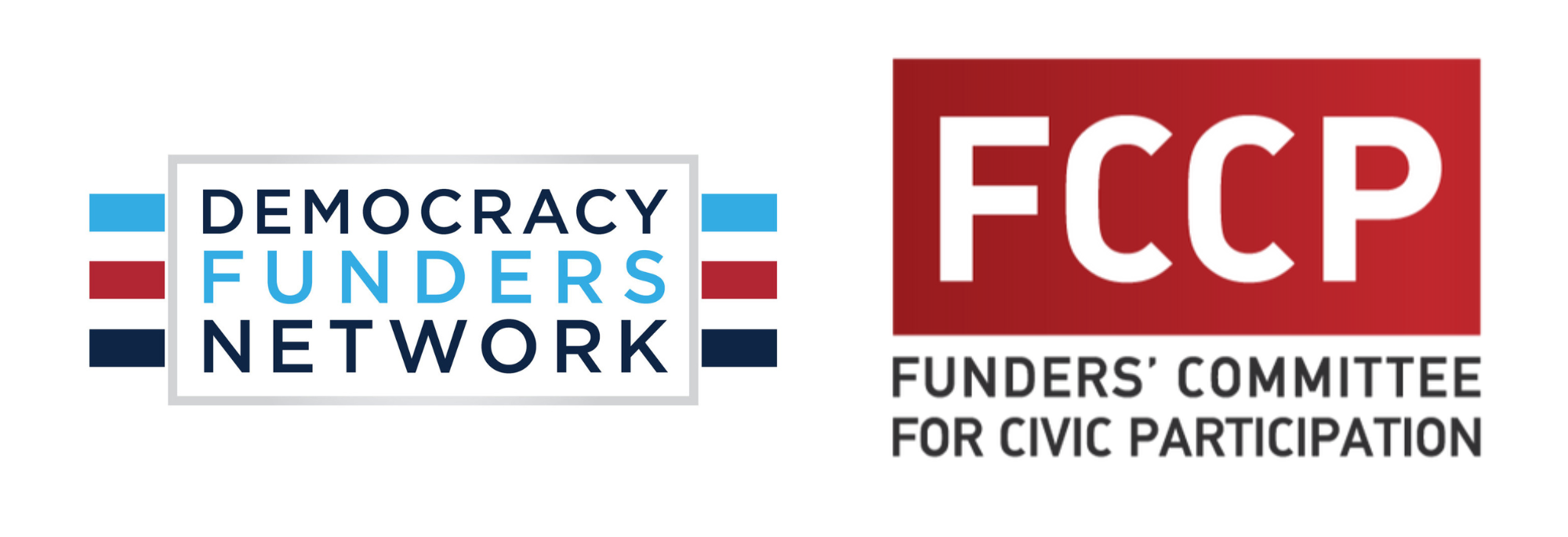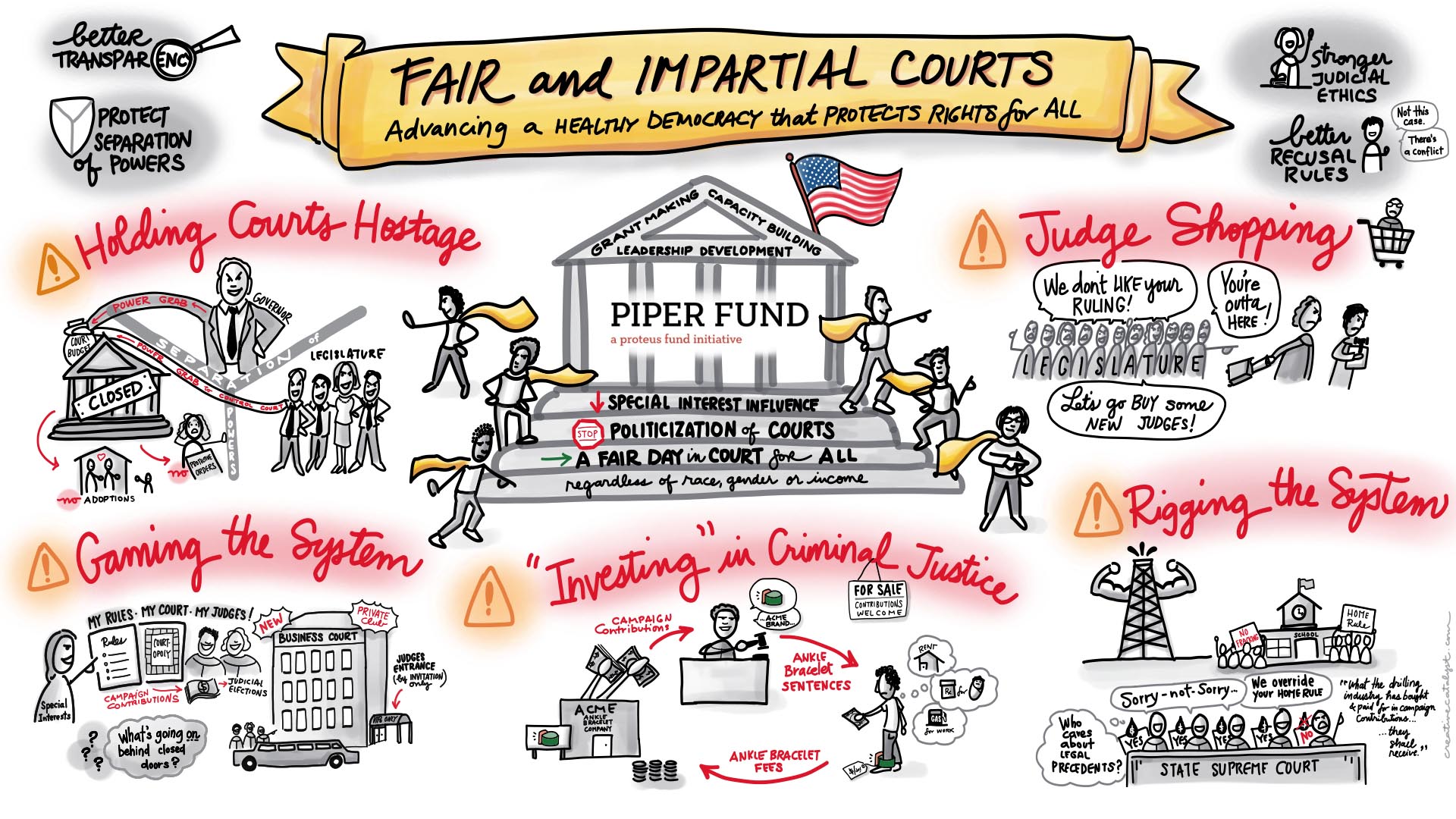For those concerned about the independence of the judicial branch in the current political moment, the unfolding situation around redistricting in Pennsylvania has triggered alarm bells and mobilized groups to take action.
The unfolding saga and threats to judicial independence
On January 2, in a 5-2 ruling, Pennsylvania’s Supreme Court struck down the state’s heavily gerrymandered districts, noting that the congressional map “clearly, plainly, and palpably” violates the state constitution, and blocked its use in the upcoming May primaries.
Senate President Pro Tempore Joe Scarnati and Majority Leader Jake Corman responded to the decision by immediately seeking a stay from the US Supreme Court. While state supreme courts are the final arbiters of interpreting state constitutions, Scarnati and Corman argued that the court in fact had no authority to strike down a congressional map. They argued that if the court’s ruling were allowed to stand, “[s]tate courts would be free to legislate an infinite number of requirements and impose them on state legislatures, thereby seizing control of elections to federal office.”
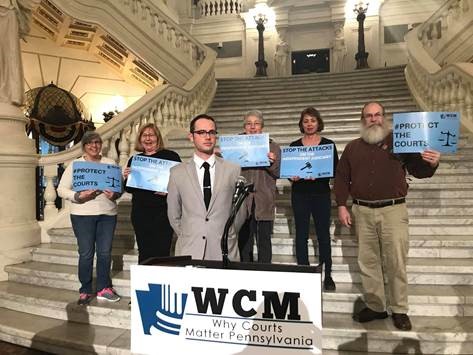
While the US Supreme Court was considering the request, Scarnati ratcheted up his rhetoric around judicial overreach. A letter that his attorney submitted to the state supreme court on January 30, signaled Scarnati’s intention to refuse to obey the court order: “In light of the unconstitutionality of the court’s orders and the court’s plain intent to usurp the General Assembly’s constitutionally delegated role of drafting Pennsylvania’s congressional district plan, Senator Scarnati will not be turning over any data identified in the court’s orders.”
On Monday, the US Supreme Court denied the request for a stay, leaving the state supreme court ruling—and its order that the state redraw its districts this month—in effect. Advocates watched closely to see if this would end the stalemate. Unfortunately, the rhetoric has only escalated. That same day, Representative Cris Dush issued a memo seeking cosponsors to impeach the five justices who decided in the majority, arguing that they had overstepped their constitutional bounds in reaching the decision. Adding to concerns over this potential constitutional crisis and the threat to the system of checks and balances, news broke that Justice Sallie Updyke Mundy, one of the justices who would have upheld the congressional districts as drawn, had failed to disclose a $25,000 campaign donation from Friends of Joe Scarnati PAC.
The legislature now has until February 9 to draw a new map, and the Governor has until February 15 to sign it into law. Meanwhile, the threat to judicial independence continues.
The field unites and takes action
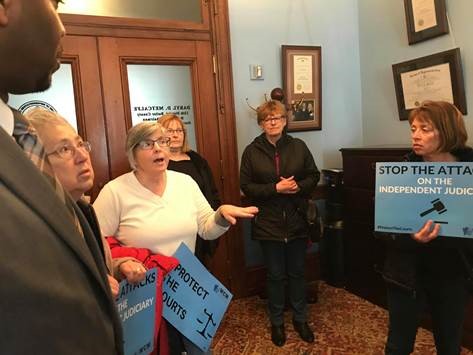
Back in December, recognizing the ever-increasing threats to judicial independence, the Piper Fund and Open Society Foundations convened a set of key state and federal courts leaders to engage in scenario planning. The exercise revealed a need for deeper coordination, expanded communications, and rapid response organizing capacity. It also underscored the need for the two fields—those protecting state courts and those addressing federal nominations—to work more closely together. We have begun working on a plan to make these connections and build out the needed infrastructure.
Upon learning that legislators in Pennsylvania were signaling a refusal to obey a court order, the groups that met in December joined an emergency call and began to share information with one another and develop joint strategy. Each organization brought its expertise, sharing information on the legal strategy, groups on the ground, talking points, and more. They reached out to local groups in Pennsylvania to center their voices in developing a broader strategy, reached out to potential trusted messengers, and supported the groups in leading a demonstration to urge the legislature to comply with the court ruling. They have begun to coordinate a media strategy, both locally and nationally, and have documented how the crisis in Pennsylvania is related to a set of attacks on the judicial branch and the rule of law across the country.
Pennsylvania is only one example of the ever-expanding threat to the independence of our courts. In our view, it signals the need for the field to be able to expand its capacity and in turn, to take the steps necessary to protect the judicial branch of government. It further is a reminder that we all rely upon the courts to protect fundamental rights, including the right to vote, as well as democratic institutions. Ensuring state and federal judicial independence must be a core aspect of all of our strategies.
| Melissa Spatz & Kathy Bonnifield | Sarah Knight |
|---|---|
| Piper Fund | Open Society Foundations |
